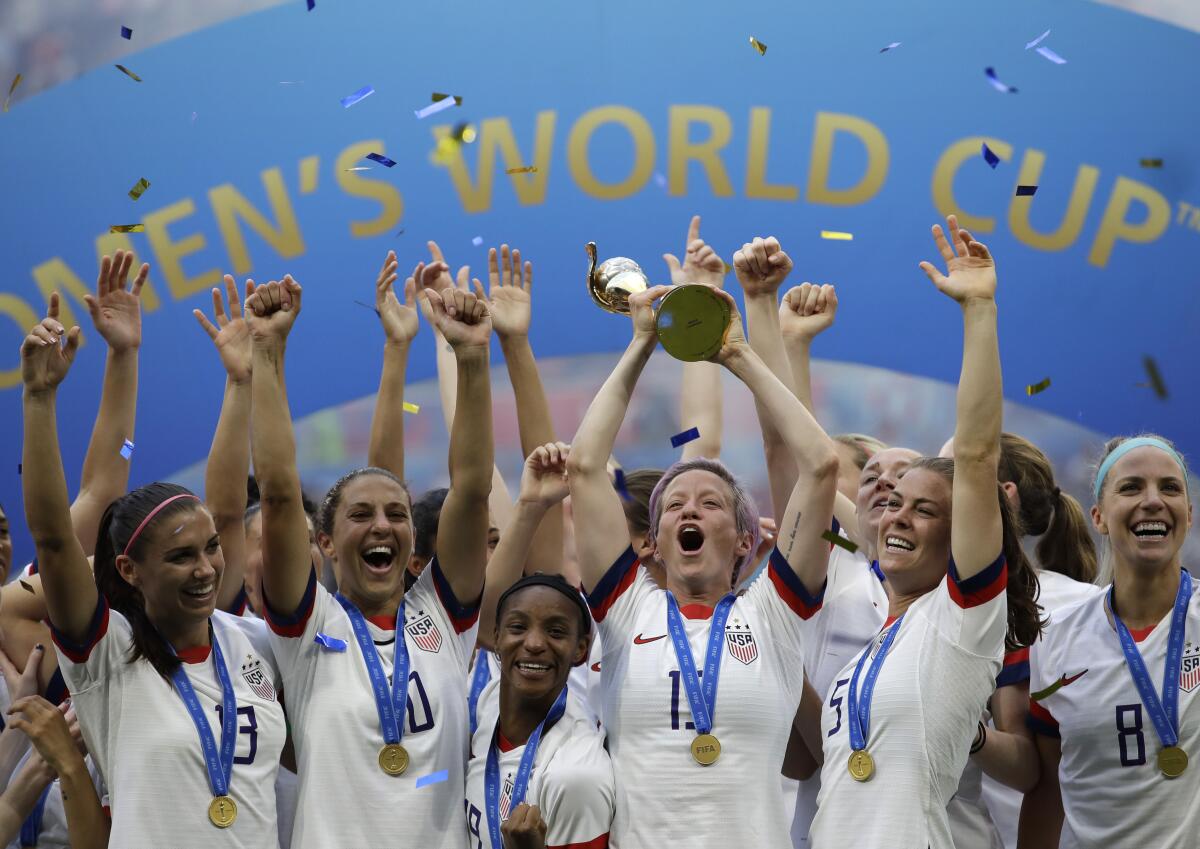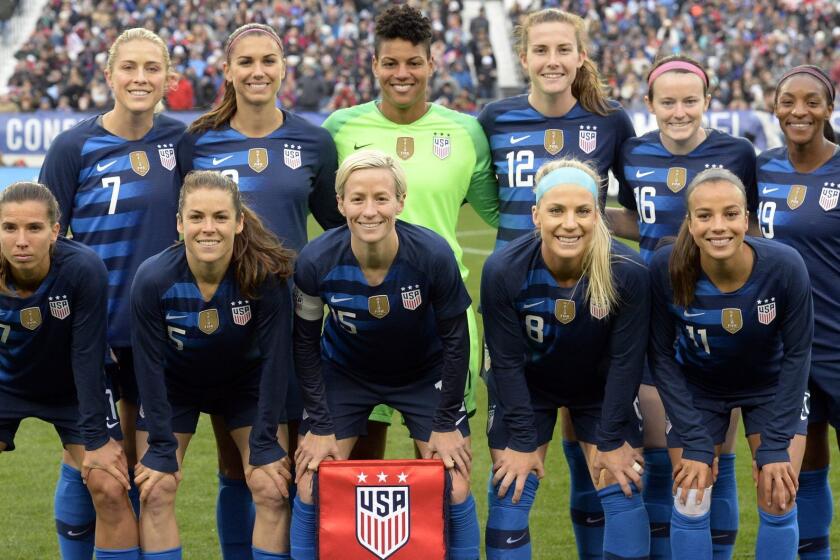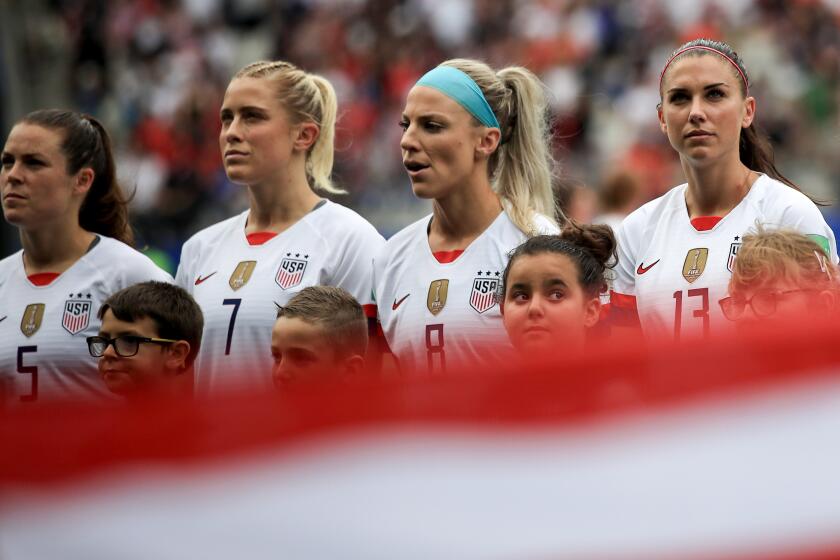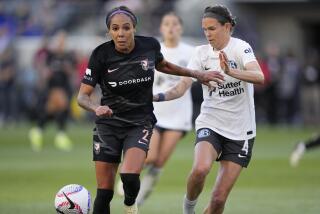U.S. Soccer urges men’s and women’s teams to consider splitting FIFA earnings equally

The U.S. Soccer Federation, in an effort to address charges of gender inequality in pay and other benefits between its men‘s and women’s senior national teams, is inviting players from both sides to join the federation in negotiating a more equitable split in FIFA prize money paid to men and women.
The women’s national team sued U.S. Soccer in 2019, citing inequitable pay and working conditions between the men’s and women’s teams and seeking more than $66 million in damages. In April, a federal judge in Los Angeles approved a partial settlementthat included an agreement on working conditions that the sides had reached last year. The judge, however, rejected the women players’ core argument that they were not receiving equal pay. That decision is being appealed and the federation has reiterated its desire to settle the dispute outside the courts.
For the second time in three years, the rock stars of United States soccer, members of the world champion women’s team, have sued their federation, alleging systemic gender-based discrimination in wages and other terms.
The women’s collective bargaining agreement with the federation expires in December and negotiations on a new one have included some of the issues raised in the lawsuit. The federation said it would prefer one CBA covering both the men’s and women’s teams, but representatives for the players have rejected that approach, insisting on separate agreements.
USSF president Cindy Parlow Cone, a former national team player who once joined her teammates in refusing to play over their treatment by the federation, addressed a letter to fans Friday morning, reiterating her commitment to that cause but adding that “the massive discrepancy in FIFA World Cup prize money is by far the most challenging issue we continue to face in our parallel negotiations with the men’s and women’s national teams ... FIFA alone controls those funds, and U.S. Soccer is legally obligated to distribute those funds based on our current negotiated collective bargaining agreements with the men’s and women’s teams.”
At the last men’s World Cup in 2018, FIFA paid a total prize-money purse of $400 million to the 32 participating teams, with tournament champion France pocketing $38 million. The U.S. did not collect any of that money because the men’s team did not qualify.
A year later the total prize money paid to the 24 teams in the Women’s World Cup, won by the U.S., was $30 million. While a record for a women’s tournament, that was less than France alone won on the men’s side in Russia. The U.S. women’s share for winning the 2019 tournament in France was just $4 million.
A judge has granted a request, in part, by U.S. Soccer for a summary judgment in a gender-discrimination lawsuit by the U.S. women’s World Cup team.
Women’s World Cup teams did not receive any prize money from FIFA until 2007, when champion Germany was given a check for $1 million. That doubled to $2 million when the U.S. won in 2015.
With FIFA making only incremental progress on gender parity in prize money, Cone wrote in her letter that getting the two national teams to agree on a split is the fastest way to realize progress on the issue in the U.S.
“Coming to a resolution on the World Cup prize money will be key to our separate collective bargaining negotiations with the USMNT and USWNT,” she wrote.
And, while there are several ways to do that, all would require the men’s team to, in some way, share its FIFA earnings with the women.
“Our new leadership team has been meeting with the USMNT Players Association for the past year, and while there’s always going to be a spirited back and forth during the process, we’ve made substantial progress,” Cone wrote in her letter. “Recently, USMNT players have joined our discussions, which is a welcome development and one that we feel can help us get to the finish line soon.”
U.S. Soccer said an agreement between the men’s and women’s national teams on revenue sharing with regards to FIFA prize money would be a first in international soccer.
Cone said the federation will be offering the two teams “the exact same contract, just as we have in past negotiations,” but that “means offering CBAs that include equalized FIFA World Cup prize money, identical game bonuses and identical commercial and revenue sharing agreements.”









